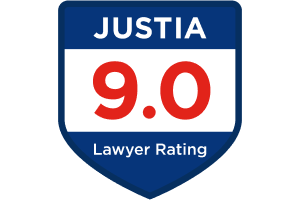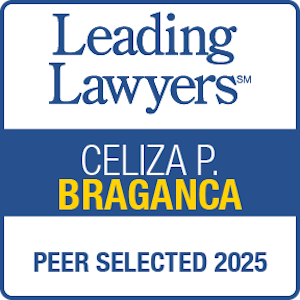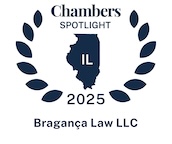- Free Strategy Session: (847) 906-3460 Tap Here to Call Us
Does Receiving a Rule 8210 Letter Mean You are Under Investigation for FINRA Violations?

The Financial Industry Regulatory Authority (FINRA) is a private, self-regulatory organization that regulates member brokerage firms and exchange markets. Just because you receive a Rule 8210 letter does not mean FINRA will charge you with violation of its rules or violation of securities laws. Nevertheless, the way you respond to a Rule 8210 letter can have a significant effect on whether FINRA brings charges against you. Many financial advisors respond to FINRA requests on their own or with the help of their firm’s compliance personnel only to discover that they made mistakes that could have been avoided. If you become involved in a FINRA investigation, you should get the advice of a FINRA investigations lawyer early.
What is FINRA?
FINRA regulates the activities of broker-dealers (also called brokerage firms), their employees, and agents. FINRA operates under the supervision of the Securities and Exchange Commission (SEC) and has the legal authority to order registered broker-dealers and broker-dealer representatives ( a/k/a registered representatives or financial advisors) to provide testimony or to produce documents. FINRA oversees more than 3,500 brokerage firms, 150,000 branch offices, and 600,000 registered securities representatives.
What Would Cause You to Get an 8210 Letter?
Receiving a Rule 8210 letter does not necessarily mean that you are personally under investigation by FINRA. However, you need to be careful to avoid creating problems because you do not understand how FINRA might view the information you provide.

FINRA may send you a Rule 8210 letter for reasons that include but are not limited to:
- a customer’s complaint
- the findings of a different investigation
- an arbitration filing
- items in U4 and U5 disclosures
- trading activity that appears unusual
- FINRA could be seeking information about another employee or about your firm. Nevertheless, you should not assume that FINRA will not be looking into your own conduct as it investigates the conduct of others.
What Can FINRA Ask You About?
If you are the recipient of a Rule 8210 letter, FINRA is probably asking you for information, documents, or testimony about a possible violation of FINRA rules by a broker-dealer or by someone who is associated with or registered with a broker-dealer. FINRA has the ability to ask about activities that extend beyond your work for a particular broker-dealer.
FINRA has the right to ask you almost anything. In 2013, FINRA clarified Rule 8210 by stating that “all aspects of the relationship between a broker-dealer and its associated persons are potentially the subject of a Rule 8210 request.” Specifically, FINRA can ask you about your outside business activities, even those that have been fully disclosed to your employer. FINRA can also ask you about private securities transactions for clients of a broker-dealer and for non-clients. If you are an owned-and-operated broker-dealer, FINRA can inspect almost any book or record that you maintain or that you have maintained for you by outside contractors.

FINRA can ask about the many items contained in the annual attestations that financial advisors complete every year. For that reason, financial advisors should obtain and keep a copy of each of those attestations for their own records. Often a financial advisor no longer works for the broker-dealer and cannot obtain copies of those attestations to see what answers they provided.
When Should You Contact an Attorney?
Whether you know why you received a Rule 8210 letter or whether you are a target, you should get the assistance of an experienced FINRA investigations attorney. The SEC gives FINRA wide-ranging powers, and a failure to respond adequately to a FINRA investigation could put you in serious legal trouble. FINRA can compel you to make documents available, to respond to questions in writing, or to appear personally to answer questions.
What Should Be Your Response to a Rule 8210 Letter?
While you may be able to answer all the questions and provide the information requested by FINRA, it is important to understand how FINRA could use that information against you before providing it. An attorney with experience in FINRA investigations can assist you in communicating with FINRA and in preparing a proper response.

It is important to decide early whether to cooperate with FINRA. Sometimes the rule violations FINRA investigates could also constitute violations of criminal laws such as anti-fraud securities laws or mail and wire fraud. Although there are situations where the best course of action is to refuse to provide any response to FINRA, the cost of doing so is high. If you do not cooperate with a FINRA investigation, you could be barred from working in the securities industry.
What Happens After You Respond?
What happens after you respond to a Rule 8210 letter from FINRA? There are several possibilities:
- You could receive additional Rule 8210 letters asking for more information.
- You could receive a letter from FINRA asking you to answer questions in person.
- You could receive a letter from FINRA telling you the investigation has been closed.
What if FINRA Decides to Bring Charges Against You?
When an investigation by FINRA determines that a securities professional or a securities firm has violated FINRA rules, FINRA may impose considerable penalties and fines. FINRA has the authority to permanently bar a broker-dealer or financial advisor from the industry. Before filing those charges, however, you will have a chance to reach a settlement with FINRA. Most of FINRA’s investigations are either closed with no charges or resolved through settlement. Those settlements are called AWCs, which is an abbreviation for Acceptance Waiver and Consent. FINRA investigations can also be resolved through less formal “cautionary” action that remains confidential and does not constitute a formal disciplinary action.























